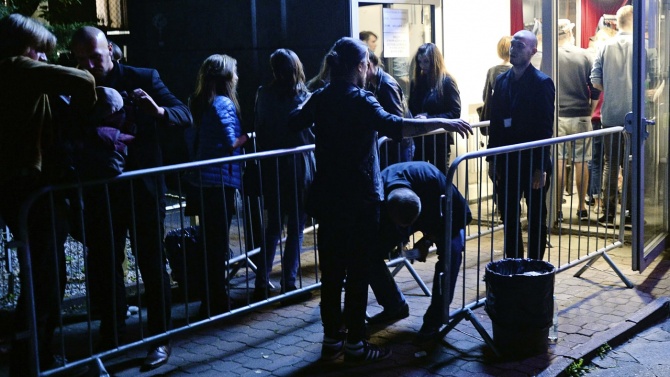After Las Vegas Shooting, Live Music Organizers Look Cautiously Forward

In the weeks since a shooter killed 58 people and wounded more than 500 others at Las Vegas’ Route 91 Harvest festival, Kevin Lyman, producer of the long-running Warped Tour, has been thinking a lot about security at his outdoor festival. In recent years, he’d already added police dogs and more barricades, and started contacting Homeland Security for help before shows. “It’s at the forefront of my mind: How am I going to keep the kids safe?” he says. “My job hasn’t been fun for a while. I used to worry about weather patterns and lightning storms. There’s no way that anyone could’ve thought something like this would’ve happened.”
Deadly attacks over the past two years, from Orlando, Florida, to Manchester, England, have forced concert organizers to drastically heighten their security, adding measures like anti-drone technology and moving crowd checkpoints far outside venue doors. But the Vegas massacre is causing them to grapple with an entirely new kind of attack.
“This one’s a real game-changer because you have someone looking down at the very large crowd,” says Bob O’Neill, president of the Grant Park Conservancy, which hosts Chicago’s Lollapalooza. “That has to be secured.” David Yorio, an owner of Citadel Security Agency, which oversees New York shows and festivals, says the attack will “redefine how we look at large outdoor gatherings.” In the future, he says, urban festivals may look like a presidential or papal visit, complete with rooftop snipers. “They’re going to have dozens of eyes on every window, every vantage point around the event.”
O’Neill was shaken when he heard that Vegas shooter Stephen Paddock likely intended to attack Lollapalooza. Paddock booked two rooms at the nearby Blackstone Hotel for August, directly in view of one of the park’s biggest exits (though he never showed up). “When the crowd funnels out, it’s wall-to-wall people,” says O’Neill. “It would’ve been awful.” He adds that discussions are already happening with police and Lollapalooza, and a top priority will be monitoring surrounding hotel rooms.
In the future, festivals may look like a presidential or papal visit.
Other options considered include running background checks on guests before they arrive, having police routinely screen rooms and putting customers’ bags through security machines. Chad Callaghan, security consultant for the American Hotel & Lodging Association, is…

Comments